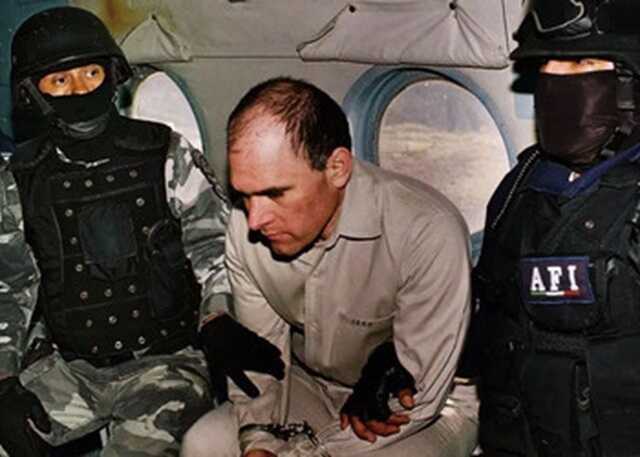The United States has released Osiel Cárdenas Guillén, the former Gulf Cartel leader who created the Zetas and ushered in the hyper-violent organized crime wars that have marked Mexico since the turn of the century.
Following his capture in Mexico in 2003, Cárdenas was extradited to the United States in 2007. He eventually pleaded guilty and received a 25-year sentence in 2010 for drug trafficking and money laundering. He was released on August 30, 2024.
As the head of the Gulf Cartel (Cartel del Golfo – CDG) from around 1997 until 2003, when he was captured by Mexican security forces, Cárdenas was among the most powerful drug lords in Mexico.
During his leadership, the CDG controlled a mammoth cocaine and marijuana trafficking empire that rivaled those of other storied Mexican organized crime groups, including the Sinaloa Cartel. The CDG, based in Mexico’s northern Tamaulipas state, took advantage of the 370-kilometer border with the United States to traffic tons of drugs into Texas and beyond.
But perhaps Cárdenas’ most significant act as CDG leader was to create the Zetas, an armed force made of deserters from an elite unit of the Mexican army. This group, which began life as an armed wing of the CDG, professionalized Mexico’s gangland warfare by detonating an arms race and introducing a kind of brutal violence never before seen in the country.
“He is arguably the most impactful, though not most famous, narco leader in Mexico,” Michael Deibert, who authored a book about the CDG, told InSight Crime.
It is still unclear exactly what will happen to Cárdenas following his release. If he’s deported to Mexico, he would likely stand trial in Mexico for pending charges related to organized crime.
He has no apparent remaining links to the CDG, which has fractured into smaller groups since his imprisonment. However, the Cárdenas family remains a powerful force in Tamaulipas’ criminal arena.
InSight Crime Analysis
Cárdenas’ extreme ambition fuelled the growth of the CDG into one of Mexico’s most powerful criminal organizations. But his creation of the Zetas changed Mexico’s criminal landscape – and perhaps the country itself – forever.
“He was the architect of extreme violence … His methods have become the blueprint for other cartels in Mexico,” Mike Vigil, a former high-ranking official of the US Drug Enforcement Administration (DEA), told InSight Crime.
In 1997, Cárdenas began building the Zetas to protect the CDG’s criminal empire against violent rivals, and to expand the group’s territory. He hired 31 members of the Mexican army’s Airborne Special Forces Group (Grupo Aeromóvil de Fuerzas Especiales – GAFES), some of whom had received training from the US Army.
Originally led by Arturo Guzmán Decenas, alias “Z1,” the Zetas brought a military-level capability to warfare in Mexico and popularized shock tactics including the beheading, flaying, and torture of victims.
Tamaulipas became dramatically more violent during his reign and the creation of the Zetas.
Cárdenas’ leadership of the CDG marks “a before and after in terms of organized crime in Tamaulipas,” Marisol Ochoa, an academic and security expert, told InSight Crime.
Though Cárdenas was reportedly able to maintain control of the group while in custody in Mexico after his arrest, the Zetas broke away following his 2007 extradition. Under Heriberto Lazcano, alias “Z3,” the armed wing grew to over 300 highly trained members.
The peak of the Zetas’ power – and its most horrifying acts of violence – came after Cárdenas’ lost the reins. In August 2010, the group abducted and murdered 72 mainly Central American migrants, in San Fernando, Tamaulipas.
Less than a year later, authorities discovered another 192 bodies, again in San Fernando, after multiple buses were hijacked in the area. Members of the Zetas later told authorities that they had forced the victims to fight to the death in gladiatorial combat, forcibly recruiting those who survived.
The escalation of violence generated by the Zetas’ arrival led Mexico’s other major criminal organizations to create their own paramilitary forces, creating a self-reinforcing cycle of violence. The Zetas rapidly expanded across much of Mexico and into neighboring Guatemala but have since crumbled. Some factions of the original group remain, including the Metros and Cyclones, and fight with other Zeta factions and descendants of the CDG for control of criminal markets, mainly in Tamaulipas.
Read more similar news:
Comments:
comments powered by Disqus
































